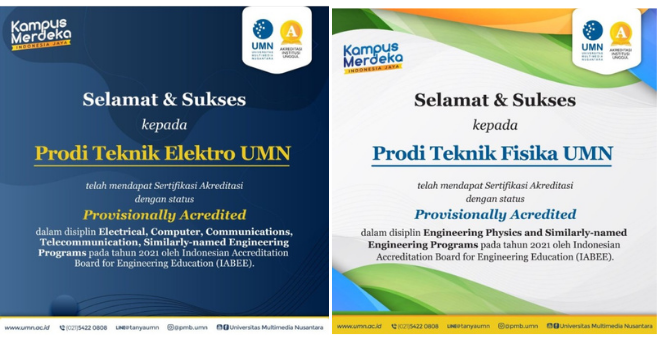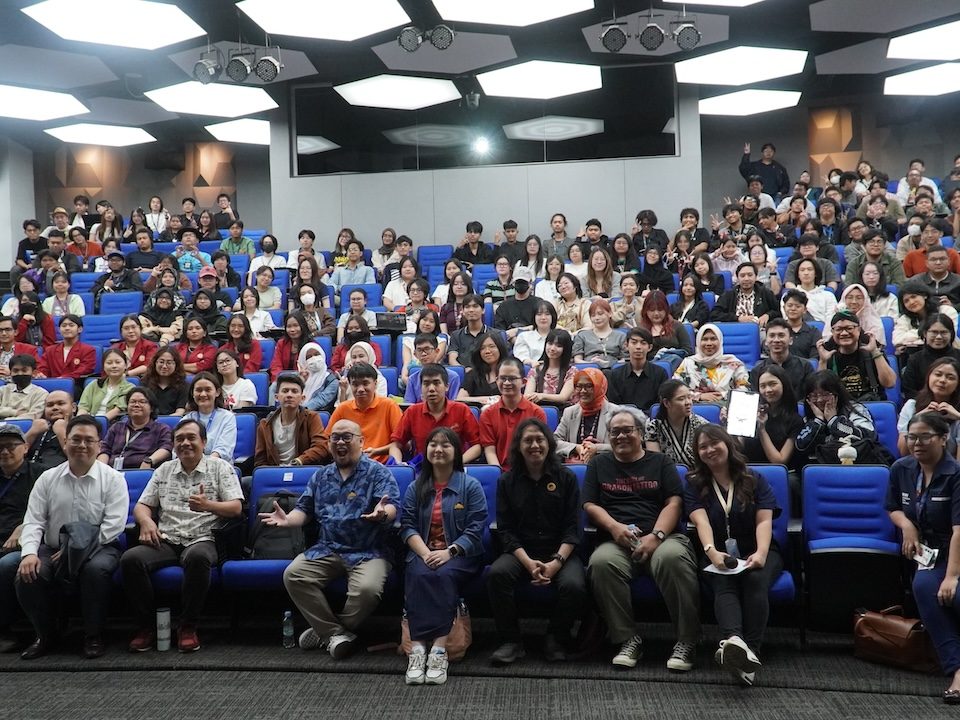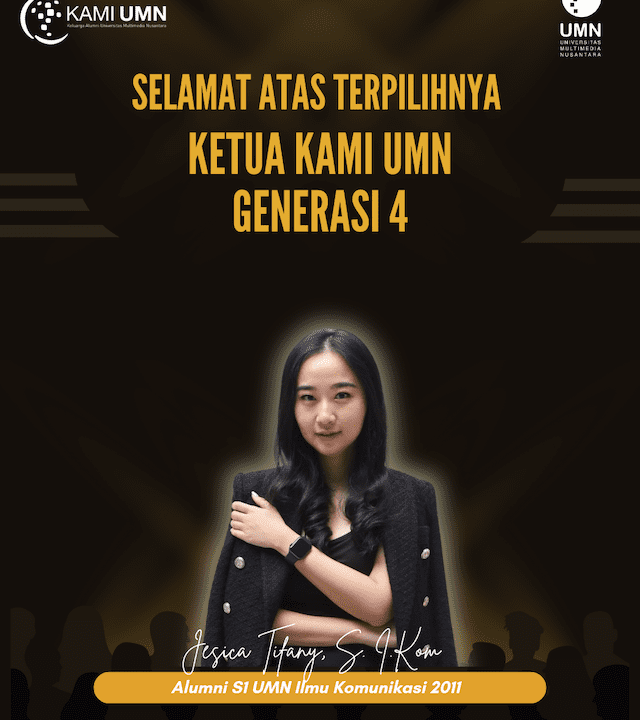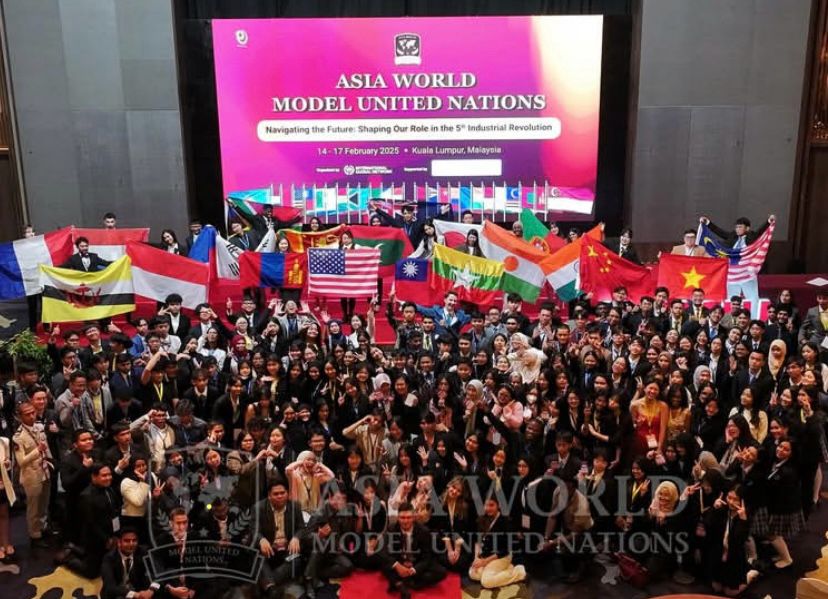
Building Bridges for a Sustainable Future: UMN’s Contribution to Global Climate Conversations
December 27, 2023
UMN Architecture Student Team Won Multiple Awards at The International Conference in Russia
January 5, 2024
TANGERANG – Ensuring that study program graduates have competency equivalence according to international standards for higher engineering education, the Electrical Engineering and Physics Engineering study programs at Universitas Multimedia Nusantara (UMN) have been accredited by The Indonesian Accreditation Board for Engineering Education (IABEE) since 2020.
In March 2021, these two study programs received accreditation certification from IABEE with the status of Provisionally Accredited in the discipline of Electrical, Computer, Communications, Telecommunication, Similarly-named Engineering Programs for the Electrical Engineering study program and in the discipline of Engineering Physics and Similarly-named Engineering Programs for the Physics Engineering study program.
IABEE, or the Indonesian Institute for Self-Accreditation of Engineering Education, was established as part of the Indonesian Engineers Association (PII). IABEE is an international standard accreditation institution that refers to the Washington Accord (WA).
Dean of the Faculty of Engineering and Informatics, Dr. Eng. Niki Prastomo, S.T., M.SC., explained that PII sees the interest in universities, especially for the field of engineering science, needs to be standardized from the beginning, and its quality needs to be maintained.
“So, when students become engineering graduates and enter the industrial world directly or want to pursue the engineering profession, they can be better prepared,” he continued.
IABEE accreditation emphasizes the implementation of Outcome Based Education (OBE) based education. IABEE has two types of accreditation, namely “Provisionally Accredited” for accreditation of early-stage study programs that have not yet produced graduates who implement an OBE-based curriculum and “General Accredited” for the continuation of an OBE-based curriculum that has been fully implemented and already has graduates from the curriculum.
The Electrical Engineering and Physics Engineering study programs have implemented the OBE curriculum standard since 2019 for Provisionally Accredited accreditation.
“IABEE standardization is based on OBE, the study program must understand what the output will be and what kind of graduates we will produce. All of that must be clear and for industrial, national, and global purposes,” Niki said.
The IABEE standardization encourages study programs always to make continuous improvements based on the Plan-Do-Check-Action (PDCA) principle and can facilitate study programs in evaluating their learning activities.
“So, the evaluation and follow-up are more guaranteed and controlled because it will be a full cycle from designing lectures and syllabus to launching the Semester Teaching Activity Program Plan as PDCA. Starting from designing lectures, conducting learning activities, checking evaluation results from student exam results, student surveys, and others, then corrective action is taken so that it can be re-planned again in the next time,” said the Head of UMN’s Electrical Engineering Study Program Ahmad Syahril Muharrom, S.Pd., M.T.
Syahril explained that there are points that characterize the output-based curriculum, such as an independent professional profile or learning outcomes for 3 to 5-year graduates from the electrical engineering study program. Then, the learning outcomes after graduation– what did the electrical engineering graduates learn/get from the points regarding learning achievements?
Graduates of study programs accredited by IABEE have an equal position to join global professional engineers ready to take career opportunities anywhere in the world.
Also read: UMN’s Physics Engineering Webinar: Implementation of Energy Management Systems in Industry.
“When students want to work outside Indonesia, they know that UMN’s electrical engineering study program has been accredited by IABEE, which means that it has been recognized by the Washington Accord, which means that graduates are the same as in other countries that the Washington Accord has standardized. Because the points in WA will also be the same as the points in IABEE,” Syahril said
The Head of UMN’s Physics Engineering Study Program, Muhammad Salehuddin, S.T., M.T., added that since our study program is still new, of course, the OBE curriculum, which is packed with PDCA activities can be cultivated from the start so that later it will become a habit.
“This habituation is certainly a challenge in improvement efforts that focus not only on student academics and lecturer qualifications but also the involvement of internal campus parties, the board of trustees, and industry partners. This continues until the alumni tracer process is carried out and even for facilities not only in the inventory of tools but the role of safety which must be socialized optimally and thoroughly to the academic community,” he continued.
To get this accreditation, several requirements must be prepared by each study program, namely the Self Evaluation Sheet document and the evidence document and overview, a summary of the study program profile that IABEE has standardized. In this document, various criteria must be informed in detail and confirmed during the visitation.
Salehuddin explained that the OBE-based curriculum has been implemented since the physics engineering study program was established. Due to the assessment process and in preparation for this IABEE accreditation, the OBE curriculum has been implemented in an integrated manner in the 2019/2020 academic year.
In the preparation process, the physics engineering study program participated in an intensive workshop organized by the Indonesian Engineers Association. Also, it brought in external experts from Gajah Mada University to refine the OBE curriculum content further.
“Luckily, UMN is supported by an IT infrastructure that guarantees the readiness of the implementation of this curriculum activity and access to integrated academic information,” concluded Salehuddin.
By Annisa Maulida | UMN News Service
English translation by Levina Chrestella Theodora
Kuliah di Jakarta untuk jurusan program studi Informatika| Sistem Informasi | Teknik Komputer | Teknik Elektro | Teknik Fisika | Akuntansi | Manajemen| Komunikasi Strategis | Jurnalistik | Desain Komunikasi Visual | Film dan Animasi | Arsitektur | D3 Perhotelan , di Universitas Multimedia Nusantara. www.umn.ac.id




